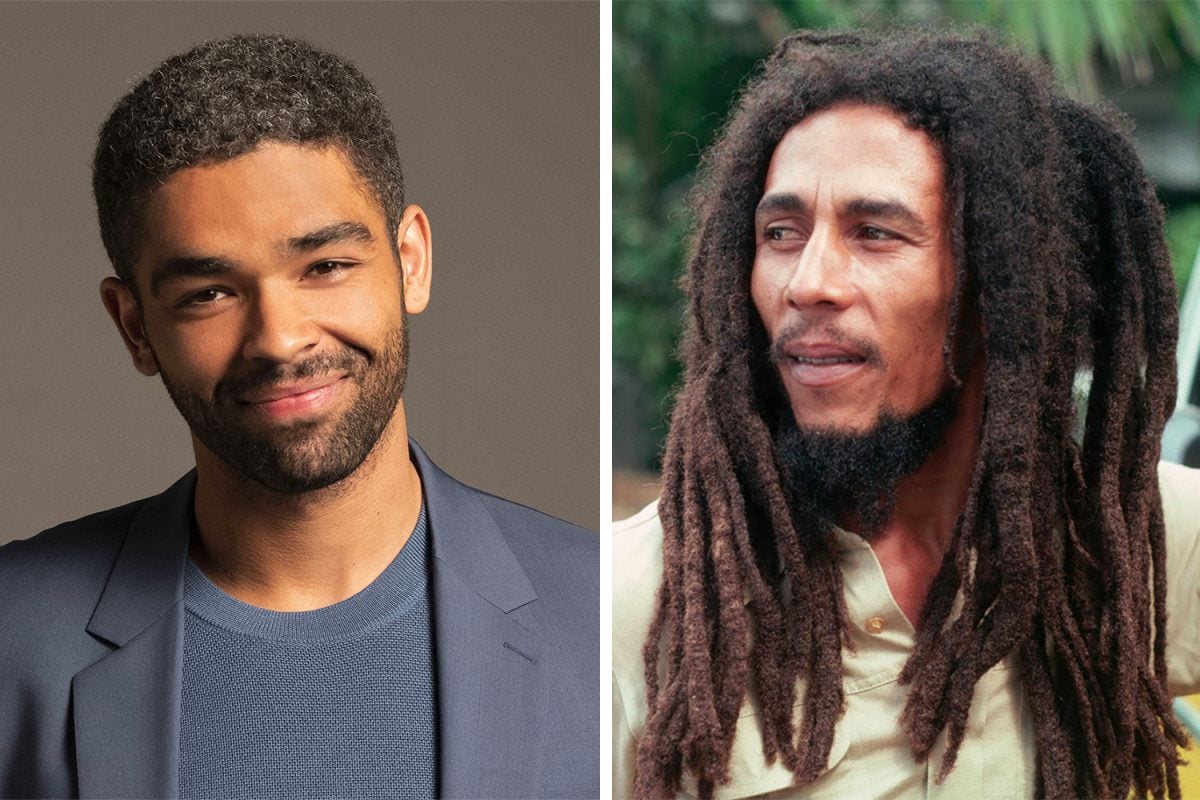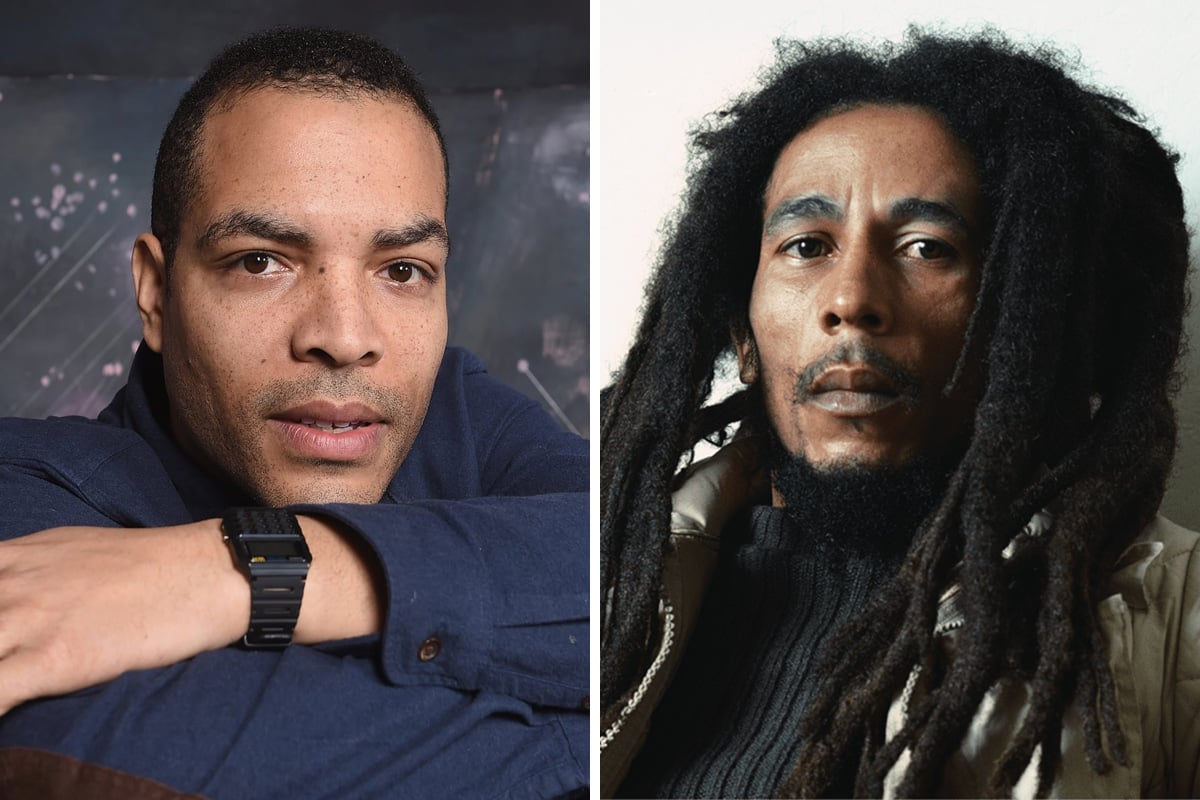Bob Marley Biopic: Kingsley Ben-Adir’s Ability To Act All That Matters, Says Director

Amid a myriad of criticisms raised by Rastafarians and Reggae fans that British actor Kingsley Ben-Adir, was unbefitting to play Bob Marley in an upcoming Paramount biopic, and the role should be given to either his sons or grandsons, who already resemble him, and are Patois-speakers and musicians, film director Reinaldo Marcus Green, says the Brits ability to act is all that matters.
“I was more interested in his acting… I was blown away by his audition tape. It was exquisite. I went back to look at his other work and realised how strong a performer he is,” Green told The Guardian.
According to Green, in preparing for the role, which will focus on the 1970s, when Marley survived an assassination attempt in Jamaica and went into self-imposed exile in London, Ben Adir will read books about the Jamaican, watch and listen to his performances, and learn how to play the guitar.
In explaining why he chose an actor rather than a musician, Green referenced Saniyya Sidney and Demi Singleton, whom he chose to play the roles of Venus and Serena Williams in King Richard, his studio directorial debut, which starred Will Smith as Richard Williams, the father of the two tennis icons, who coached them to sporting superstardom.
“The same way that I approached King Richard, the two young actresses that play Venus and Serena had no sports capabilities whatsoever. It’s about being great actors – and then training,” he explained of the film, which saw Smith winning the best actor award at the Oscars for his role in King Richard, and the biopic copping five other Oscar nominations, including best picture.

According to Green, Ben-Adir is also mixed race, son of a white English father and a mother whose parents were from Trinidad and Tobago, was among shared “fundamental characteristics which are so important in the casting”.
“Then it’s about performance and ideas. He’s never going to be able to play like Bob in the time that he has to prepare for the role. But he can immerse himself in the world of Bob and folks around him, understanding everything from how to hold the guitar to what it’s like being a musician,” the director said.
“Right now we don’t know how much Kingsley will actually sing. There might be a combination of real voice and the real tracks. You can’t mimic Bob Marley. You have to have an essence of who he was,” he added.
The executive producers of the film are Marley’s widow Rita, his daughter Cedella and his eldest son Ziggy, and according to Green, the Marley family’s main concern is that Bob is portrayed “in a way that feels authentic and meaningful.
“We talk all the time. Every step of the way, the script, the casting, the hair, the makeup,” he said.
In February this year, like some of their African American counterparts did in 2020, when Ben-Adir was handpicked to play the roles of Barack Obama and Malcolm X, Jamaicans, Rastafarians and some Reggae lovers outside the island, were up in arms that the British actor has been similarly picked to play the role of the Reggae icon.
Among the central bones of contention were that Bob would not want a “fake Rasta” wearing a wig or extensions representing him, and that Ky-Mani Marley or one of his six other sons or grandsons, ought to have been selected.
They had also contended that as a foreigner, no matter how hard he tries, Ben-Adir will not be able to effectively portray the nuances and mannerisms of Jamaicans, nor master the Patois language, but would sound comical as has been the case with the long list of acclaimed foreign actors who attempted to play roles as Jamaicans.
Back in August 2020, Ben-Adir had earned the wrath of African Americans after making statements during a LA Times interview which they considered condescending, about actor Samuel L Jackson, who had questioned the use of Britons for black roles, while pointing out that American Descendants Of Slavery (ADOS) “bring something special to ADOS roles”.
During the LA Times interview, about whether Ben-Adir would face any backlash by portraying two African American icons – Malcolm X and Barak Obama in Hollywood movies, the British actor had said that “America is the center of its own universe — culturally” and that “it’s understandable that Samuel L. Jackson doesn’t have a clue what it’s like growing up as a Black man in inner-city London; he probably thinks we’re all sitting around drinking tea with the Queen”.
However, African Americans had labeled the Briton as “brash and offensive”, as well as having cognitive dissonance, and rejected his “condescension towards Jackson” and his presumption that the acclaimed actor was “just some country yokel”, and not the “formally trained, educated and highly acclaimed actor of stage and screen longer than he (Ben Azir) has been alive”.
They also met with disdain, Ben-Azir’s statements that there were no acting opportunities for him in Britain, after he said that there was “no career” and “no work” for him in the UK and that he had not “read a good script with a leading role or a decent solid role coming out of the UK” in two years and that he spent his “early 20s waiting to get to 30” so he “could come to America and play interesting parts”.
But African Americans had insisted that Black Actors in London should be pushing to get their industries going, and “fight the good fight against their exclusion”, the way African Americans have had to fight for theirs. Some had vowed to boycott any project that featured Ben-Adir.
One Twitter commenter had contended that black British actors “coming over here to portray our icons and cultures is fraud and encourages you to lose yourself in other people and black Britons ought to “fight in their own land to portray their own icons” because in America, “they’re clones or doppelgängers”.
The sometimes-controversial issue of selecting actors who embody the role of musical icons, was discussed in a December 2020 article in the Insider.
The article noted that “musical legends have been brought to the big screen for decades, in biopics that range from transformative to mediocre” and that “finding actors who can accurately portray those artists often requires some musical training, studying of mannerisms, and physical transformations”.
On one hand, similar to the Ben-Adir controversy, the article highlighted the 2012 casting of Zoe Saldana, whose transformation into The High Priestess of Soul, Nina Simone for the film Nina was highly contentious, with African Americans even going as far as to launch a petition, decrying as “disrespectful”, the fact that instead of casting someone dark-skinned actress, who resembled Nina, the actress’ skin was darkened and the filmmakers added a prosthetic nose “to make Saldana appear more like Simone”.
In addition to being a revered singer, Nina, who died in 2003 at the age of 70, was a civil rights activist, known for songs such as Four Women, Mr Bojangles and Sinnerman. Nina’s Sinnerman has been interpolated several times by The Wailers, first in 1964 where Peter Tosh and Bunny Wailer shared lead vocals, and later Downpressor Man by Peter Tosh for his 1977 solo album Equal Rights, while Four Women and Mr Bojangles have been covered/interpolated by Reggae/Dancehall star Queen Ifrica.
Years later Zoe Saldana, after scoffing at the criticisms where she stated that “there’s no one way to be black”, apologised for playing Nina Simone in the heavily criticised 2016 biopic, saying that the late Jazz icon deserved better, and “should be – honoured to the most specific detail because she was a specifically detailed individual… and somebody else should tell her story”.
But on the positive side, Insider had also cited Jamie Foxx’s universal acclaim for his portrayal of the blues legend Ray Charles in Ray, in which the actor, in order to embody the blind pianist, “had to lose nearly 30 pounds and had his eyes glued shut every day”, as among the “more intensive” roles, compared to others which “merely require learning some choreography and slight makeup”.
Foxx’s performance had earned him the Academy Award, Golden Globe, BAFTA Award, Screen Actors Guild Award, and Critics’ Choice Award for best actor.
Paramount Pictures has announced that the untitled Bob Marley biopic is set for release on January 12, 2024.
